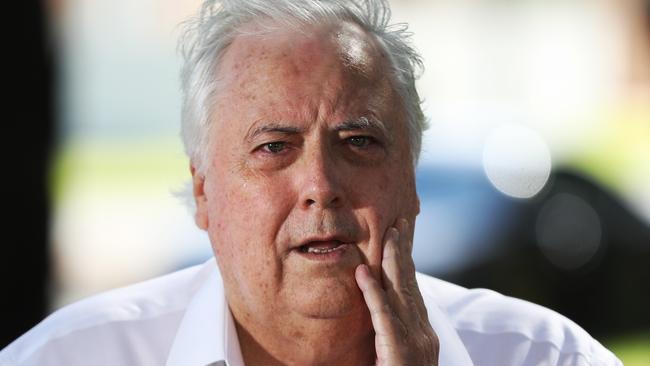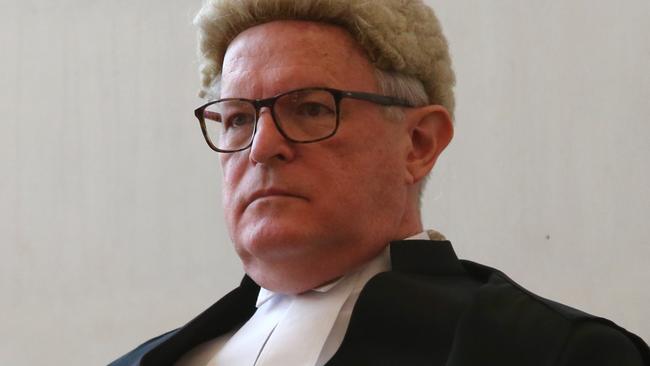Watchdog has win on Clive Palmer political donations
Queensland’s electoral watchdog is one step closer to preventing Clive Palmer from making political donations in the state through one of his many companies.

Queensland’s electoral watchdog is one step closer to preventing billionaire businessman and former federal MP Clive Palmer from making political donations in the state through one of his many companies.
The Electoral Commission of Queensland applied to the Queensland Supreme Court in late 2020 for a declaration that Mr Palmer was a property developer and therefore a prohibited donor, following an investigation by The Australian.
Palmer Leisure Australia, directed by Mr Palmer, made several donations to his United Australia Party, which ran 55 candidates at the October 31, 2020, state election.
The company is also pursuing a development application with the Gold Coast City Council to redevelop its Palmer Colonial Golf Course, at Robina.
The application asks the council to approve Mr Palmer’s Robina Transit Development Plan project, which would include 2500 dwellings, downsize the activities of the existing golf course, provide for a mixed-use commercial hub and include buildings of various heights to a maximum of 30 storeys.
Gold Coast council rejected the application and the matter is before the Planning and Environment Court.
The Australian also uncovered that Mr Palmer had personally lodged an application with the council to develop his Avica wedding resort and spa at Merrimac, although that does not form part of the court action.
Supreme Court judge Glenn Martin on Thursday dismissed Palmer Leisure’s application to have the ECQ’s case thrown out of court, ruling it was possible the company could be a property developer, even though it had lodged only a single property development application.
“The fact that only one planning application had been made would not, of itself, prevent a finding that Palmer Leisure came within the definition (of a prohibited property developer under the legislation),” Justice Martin ruled.
“It is a question of fact dependent on other matters.
“And those are matters to be determined at a trial.”

Mr Palmer denies being a property developer under the Electoral Act, which carries a penalty of 10 years’ jail or a nearly $200,000 fine if a person is found to have knowingly circumvented the ban on developer donations.
At the time, Mr Palmer insisted his main business was mining, not real estate, and he had not lodged a new development application since the ban on developer donations became law in 2018.
In the last six months of 2020, Mr Palmer and five of his private companies donated $2.13m to his United Australia Party, including the largest single donation in Queensland political history: $2m from his flagship company Mineralogy.
The party did not win a seat at that election.
A spokeswoman for the ECQ said the court had “dismissed with costs” the application for summary judgment brought by Mr Palmer’s company.
The watchdog will now continue to press for the court to declare Mr Palmer’s company a property developer, and therefore a prohibited donor.




To join the conversation, please log in. Don't have an account? Register
Join the conversation, you are commenting as Logout